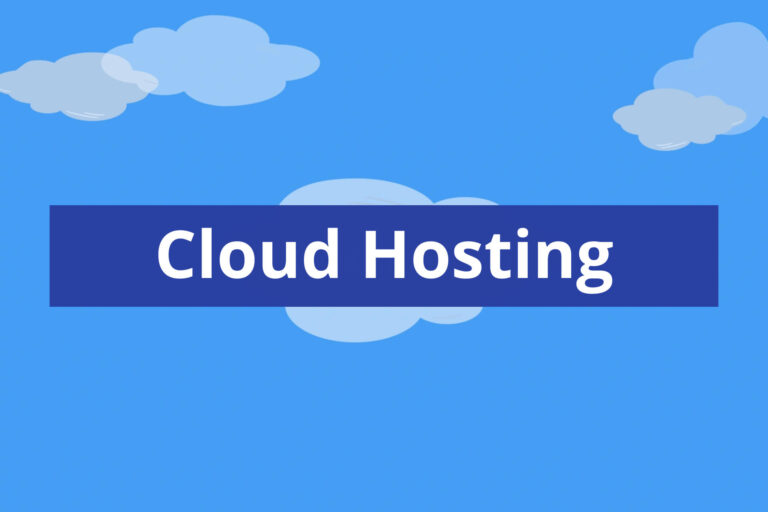Top Features of Web Hosting Services – What Every Website Owner Needs to Know
Are you looking to unlock the full potential of your website? Look no further than web hosting services, as a reliable and powerful web hosting provider is essential for businesses and individuals alike. But with so many options available, how do you choose the right one?
In this article, we will explore the must-have features of web hosting services to help you make an informed decision. From speed and uptime guarantees to security and customer support, we will delve into the key factors that determine a top-notch web hosting service.
Whether you are a small business owner, a blogger, or an e-commerce entrepreneur, understanding these features will ensure your website is always up and running, attracting visitors and driving conversions. Don’t let a subpar web hosting service hold you back. Unleash the power of your website with the right web hosting provider.
Importance of Choosing the Right Web Hosting Service
The success of your website heavily depends on the hosting service you choose. A poor hosting provider can lead to slow loading times, frequent downtimes, and even security vulnerabilities. These issues not only frustrate your visitors but can also negatively impact your search engine rankings and overall credibility.
On the other hand, a reliable hosting service ensures your site is always accessible, loads quickly, and is secure from threats. This enhances the user experience, which can lead to better engagement, higher conversion rates, and improved search engine visibility. Therefore, choosing the right web hosting service is essential to the success and sustainability of your online presence.
Essential Features to Look for in a Web Hosting Service
When evaluating web hosting services, it’s important to consider a range of features that will meet your specific needs. Here are some essential features to look for:
| Feature | Description | Importance |
|---|---|---|
| Server Reliability & Uptime | Ensures your website is accessible almost all the time with minimal downtime. | High |
| Scalability & Flexibility | Ability to easily upgrade your hosting plan as your website grows. | High |
| Security Measures | Includes SSL certificates, firewalls, and DDoS protection to safeguard your site. | Critical |
| Data Backups | Regular backups to prevent data loss and ensure quick restoration in case of issues. | Critical |
| User-Friendly Control Panel | Intuitive interface (e.g., cPanel) for easy management of your website without technical skills. | Medium |
| Customer Support | 24/7 support through various channels like live chat, phone, and email. | High |
| Additional Features/Add-Ons | Extra tools like CDN integration, one-click software installations, and email hosting. | Medium |
| Cost | Pricing for the plans and the value for money. | Varies by Budget |
- Server Reliability and Uptime Guarantees: The reliability of your hosting provider is crucial. You want to ensure that your website is up and running as much as possible, as frequent downtime can lead to lost traffic and revenue. Most reputable hosting services offer uptime guarantees, usually around 99.9%. This means that your site should only experience minimal downtime throughout the year.
- Scalability and Flexibility Options: As your website grows, so will its resource needs. It’s important to choose a hosting service that offers scalability, allowing you to easily upgrade your hosting plan as your traffic increases. Flexibility in terms of hosting options, such as shared hosting, VPS, and dedicated servers, is also important. This ensures you can find a solution that fits your current needs and can grow with you.
- Security Measures and Data Backups: Website security should be a top priority, especially with the increasing number of cyber threats. Look for hosting providers that offer robust security features, such as SSL certificates, firewalls, malware scanning, and DDoS protection. Additionally, regular data backups are essential to ensure that you can restore your site quickly in case of data loss or a security breach.
- Control Panel and User-Friendly Interface: Managing your website should be easy, even if you’re not tech-savvy. A user-friendly control panel, such as cPanel or Plesk, can make it simple to manage your website, emails, domains, and more. Look for a hosting service that offers an intuitive interface that allows you to perform tasks without needing extensive technical knowledge.
- Customer Support and Technical Assistance: Even the best hosting services can experience issues from time to time, and when that happens, you’ll want reliable customer support to help you out. Look for providers that offer 24/7 support through multiple channels, such as live chat, phone, and email. It’s also beneficial to choose a host with a robust knowledge base or community forum for self-help resources.
- Additional Features and Add-Ons: Some hosting services offer extra features that can enhance your website’s performance and functionality. For example, CDN (Content Delivery Network) integration can help speed up your site by serving content from servers closer to your visitors. Other useful add-ons might include automated backups, one-click installations for popular software like WordPress, and email hosting.
Server Reliability and Uptime Guarantees
When choosing a web hosting service, server reliability should be one of your top considerations. Downtime can be costly, leading to lost sales, frustrated visitors, and potential damage to your brand reputation. That’s why uptime guarantees are so important.
Most reputable hosting providers offer uptime guarantees of 99.9% or higher. This means that your site should be up and running nearly all the time, with only minimal, scheduled maintenance downtime. Before choosing a host, it’s a good idea to research customer reviews and independent uptime monitoring reports to verify that the provider delivers on its promises.
Scalability and Flexibility Options
As your website grows, you’ll need more resources, such as bandwidth and storage, to accommodate increased traffic. Scalability is the ability to easily upgrade your hosting plan to meet these demands without experiencing downtime or other issues.
Many hosting providers offer flexible plans that allow you to start small and scale up as needed. For example, you might start with shared hosting and later upgrade to a VPS or dedicated server as your website grows. Having this flexibility ensures that your hosting solution can evolve alongside your business without requiring a complete migration to a new provider.
Security Measures and Data Backups
Security is a critical aspect of web hosting, especially if you’re handling sensitive customer data or running an e-commerce site. Look for hosting providers that offer strong security features to protect your site from cyber threats.
Some key security features to consider include SSL certificates, which encrypt data transferred between your website and its visitors, and DDoS protection, which helps prevent attacks that can overwhelm your server. Regular malware scanning and firewalls are also essential for keeping your site secure.
In addition to security measures, regular data backups are vital. If something goes wrong, such as a hacking attempt or a server failure, having a recent backup of your site ensures that you can quickly restore it without losing important data.
Control Panel and User-Friendly Interface
Managing your website should be a straightforward process, even for beginners. A user-friendly control panel can make it easier to handle tasks such as managing domains, creating email accounts, and installing software.
Popular control panels like cPanel and Plesk offer intuitive interfaces that allow you to manage your hosting account without needing advanced technical skills. Many hosting providers offer these control panels as part of their service, so be sure to choose one that offers a management interface that you’re comfortable using.
Customer Support and Technical Assistance
No matter how reliable your hosting service is, there may come a time when you need help. That’s why having access to responsive and knowledgeable customer support is crucial.
Look for hosting providers that offer 24/7 customer support through various channels, such as live chat, phone, and email. Having multiple contact methods ensures that you can get help whenever you need it, whether it’s a minor issue or a major problem that requires immediate attention.
In addition to customer support, a well-maintained knowledge base or community forum can be a valuable resource. These platforms allow you to find answers to common questions and troubleshoot issues on your own.
Additional Features and Add-Ons
Beyond the core features, many hosting providers offer additional tools and services that can enhance your website’s functionality and performance. Some of these add-ons include:
- CDN Integration: A Content Delivery Network (CDN) can improve your site’s loading speed by serving content from servers that are closer to your visitors.
- One-Click Installations: Installing popular software like WordPress, Joomla, or Magento can be done with a single click, simplifying the setup process.
- Email Hosting: Many hosting providers include email hosting as part of their plans, allowing you to create professional email addresses using your domain name.
- Automated Backups: Regular backups can be automated, ensuring that you always have a recent copy of your website’s data in case of an emergency.
Conclusion: Making an Informed Decision for Your Web Hosting Needs
Choosing the right web hosting service is essential for the success of your website. By focusing on key features such as server reliability, scalability, security, and customer support, you can find a hosting provider that meets your needs and helps your website thrive.
Don’t rush the decision—take the time to research your options, compare features, and read reviews. By making an informed choice, you can ensure that your website is well-supported, secure, and ready for growth.







